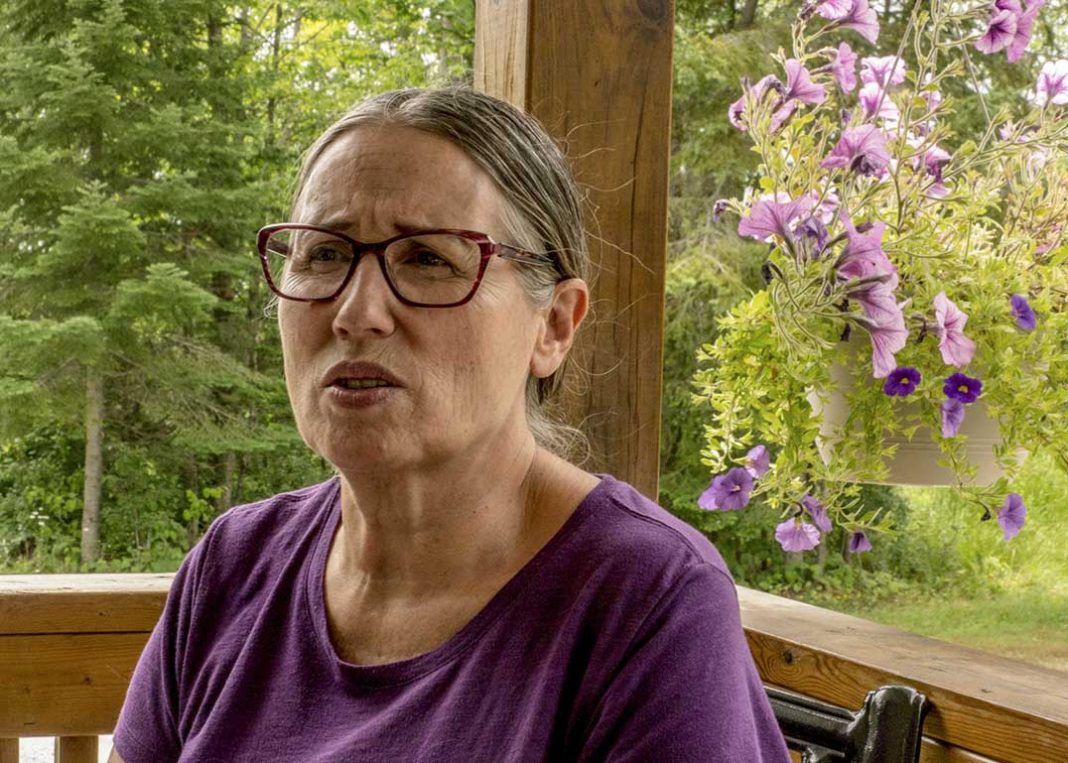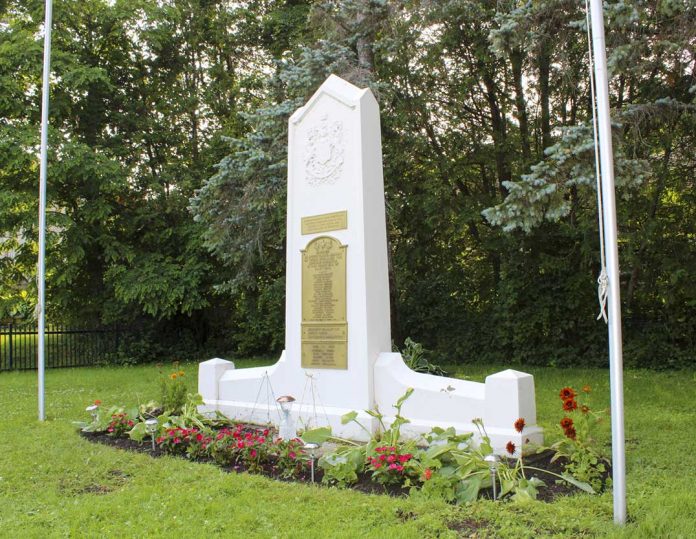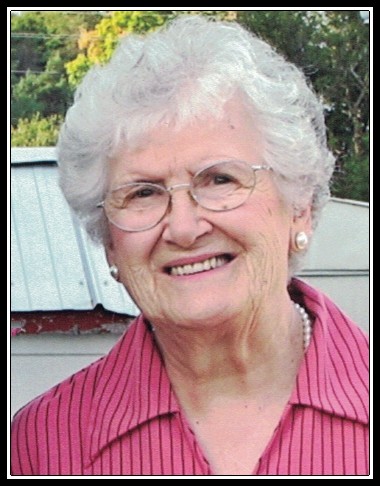Telling stories is as familiar to Esther Osche as the heavily forested territory of Whitefish River First Nation, where she was born and raised.
The elder and member of the band council of the community is a storyteller in the oral tradition of the Anishinaabek, the people of the Three Fires Confederacy—the Odawa, Ojibwe and Pottawatomi—who have lived here and in this region for thousands of years.
When asked how she became a storyteller, Ms. Osche responds by telling a story about the stories her grandparents and parents told her; they imparted the history and life lessons that are never far from her mind as she teaches them.
“The oral tradition is a way of life for us,” begins Ms. Osche, who has also written two plays, ‘Lupi the Great White Wolf’ and ‘Thunderbird Children,’ for Debajehmujig Theatre Group. “It is dominant in daily life, part of the cultural fabric. Telling stories is not set apart, it’s always going on.”
In the words of Ms. Osche, told on a hot summer’s day in the shade of her porch in Whitefish River, here is the story of the storytelling that shaped her life.
“My family lived next to my grandparents, Bill and Annie Migwanabe. They were tellers, and as a child growing up, I was listening.
“My grandparents took every opportunity to teach. They’d explain things in detail—how did we get here?— and often they would say: ‘We lived differently then.’ I very much wanted to know about that.
“My grandfather would explain that our people didn’t stay too long in one place. That’s how I learned we are a migratory people. His travel stories always led to me asking, ‘Well, how did that work?’ That’s how I learned the history. For him the lodges were his school.
“He told me the reasons behind things. He would look at maps to explain places and people to me. I learned my whole history from him, particularly about wars. I learned how a vast territory was essential to our survival, how conflicts interrupted our food supplies, how allies came to our aid when there were threats.
“Grandfather would explain how to find food, depending on conditions, how they would plant food on their summer sojourns. We are hunters and gatherers; it’s a complex way of living, planning, getting ready, yet still understanding that things change all the time.
“While moving, we were also trading. I learned about the importance of maintaining relationships and upholding trade agreements and protocols. Without these, things collapse and the strength of the tribe is diminished.
“My grandfather lived at the tail end of those practices. He was telling me what his great grandparents had told him and he remembered lodge life.
“He taught about sacred places, about geographic points of travel; he wanted me to relate to the land by showing me the burial places of chiefs, to understand my surroundings—the land—and how to survive on this land. Use your observation, he’d say, your instincts and your common sense.
“He trusted me to understand the impact of contact.
“While fishing, we practiced our old ways and grandfather explained that nets are better if you depend on fishing for survival. Sometimes we pretended to be using rods because nets were prohibited.
“He was the grand master of distraction, he might ask: ‘Why do you think the fish are our relatives?’ Then he’d explain how we used to be fish, how nature and the animals, our elder brothers and sisters, evolved—how they had promised to keep us sustained and that’s what they did for us. Ojibwe are fish culture—we depend on them and them on us. We just followed the fish—travelling by water, rarely by land. We are totally co-dependent with every living thing.
“If a bird is disturbed in its nest, he said, the order of the universe is disturbed.
“When the hunt came, I wanted to be part of that chain. I wanted to give thanks to the animals as my grandfather did. My dad took me with him, although my mom wasn’t happy about it. He satisfied my need to go out there and see everything and it became valuable later in life, but I didn’t know that then.
“My grandmother slowly made me understand women’s role. She received what the men brought from the hunt, she did the hanging and cutting, she supervised. I was fascinated that women knew everything, they got to take care of every part of the animal. I learned from her by watching her.
“I learned about the spirit, emotions and being human from my grandmother while we were canning or quilting. I was human, yes, but I was something else, too. We are spirits on a great journey.
“Grandfather taught a way of life: If you don’t take care of your environment, it’s not going to take care of you. He taught us to be mindful only to take what we need. Leave some for the animals as they taught us about how things replenish.
“I learned that the precepts of the elders taught kindness and sharing and that the height of this practice and behaviour allowed us to survive.
“If the story says it will be all right, then it will be. And you can fish yourself out of almost anything.”
Preserving the stories in the oral tradition means that Ms. Osche never writes them down (other than the plays she wrote for Debaj). She accepts any opportunity to teach and tell stories, with a focus on her home community, “to help children understand their place here and enhance their understanding of their cultural identity.”
Our time together is up, though the stories are far from finished. “I guess I have a big memory, to remember everything,” says the storyteller, “but I never forgot a single bit of it.”
“This is the people we came from. We’ve changed—under pressure. That’s why it’s fundamental to go back to the centre and understand all the old stories.”





